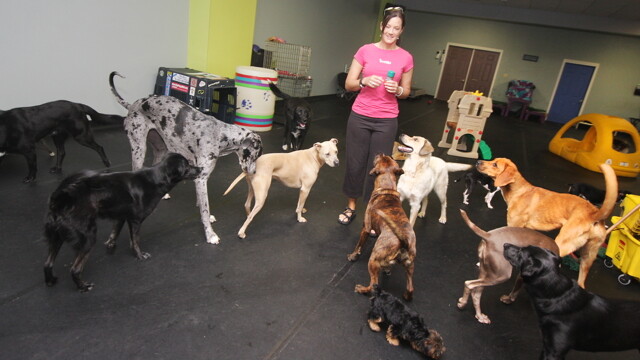Researching Rover
local research project to make dog training more effective
Maggie McCracken, photos by Andrea Paulseth

emBark doggie daycare and UWEC are embarking, so to speak, on a five-month-long study examining how dogs learn, play, and retain information. emBark owner Heather Mishefske will be teaching the classes, while UWEC student Kaitlin Snider heads the research. The study focuses specifically on the use of “markers,” sounds which trigger a mental cognizance for the dog. For example, many trainers use whistles to let a dog know that he/she has performed correctly. In layman’s dog training, we might use the sound “good girl.” The study is examining the use of markers and how they might make training less difficult for pets and pet owners alike. Why is this important for the average pet? As Snider describes, “millions of unwanted dogs are euthanized in animal shelters every year. Most dog trainers and animal shelter workers will also tell you that most of the dogs that are given to animal shelters are given up because of preventable behavior problems – the dog barks, the dog jumps on people, the dog pees in the house, the dog can’t be walked because it pulls too much.” If we can learn to better train our pets – and make training easier for average pet owners – this could be a useful tool for creating a fairer world for dogs. “My research comes in on the element of speed in dog training. We have a fast-paced society, and most owners have limited time to spend with their dogs.” The study still needs lovable dogs and loving pet owners to participate in this study. Contact emBark for info.

